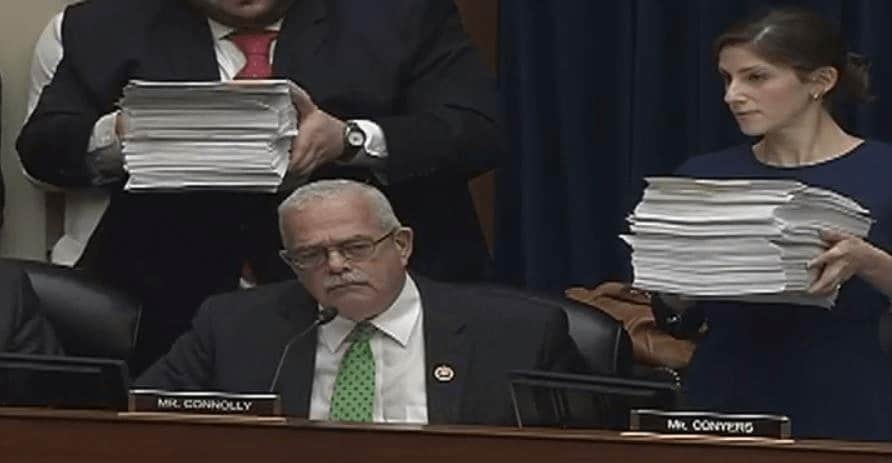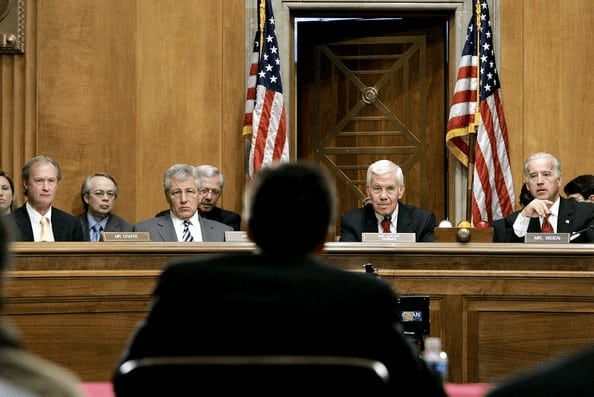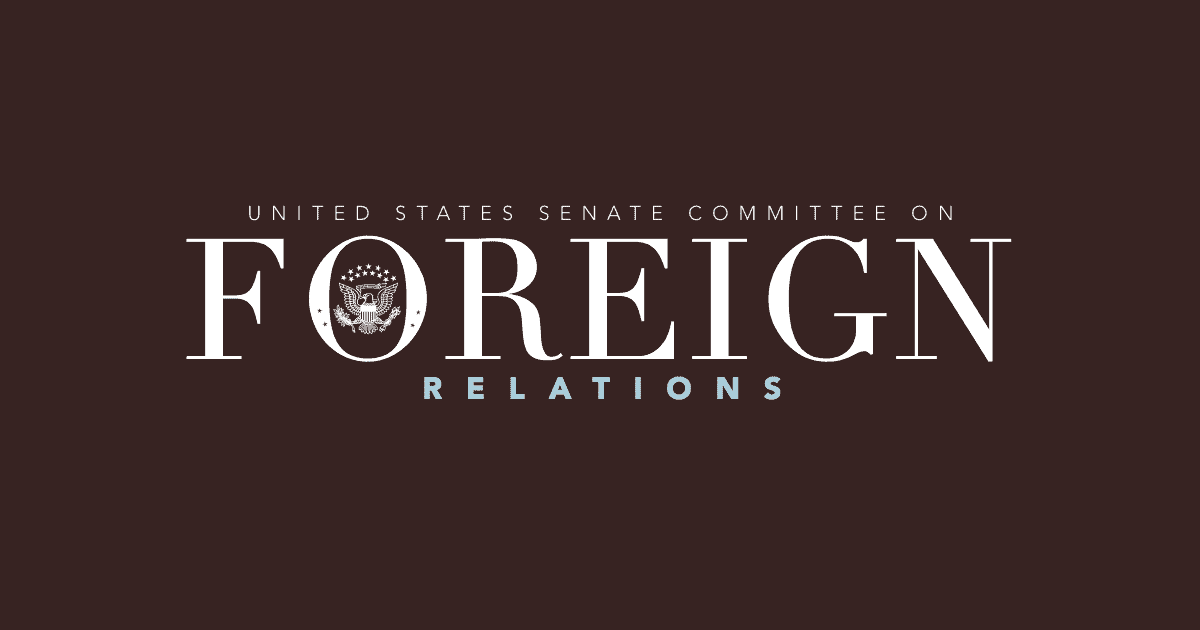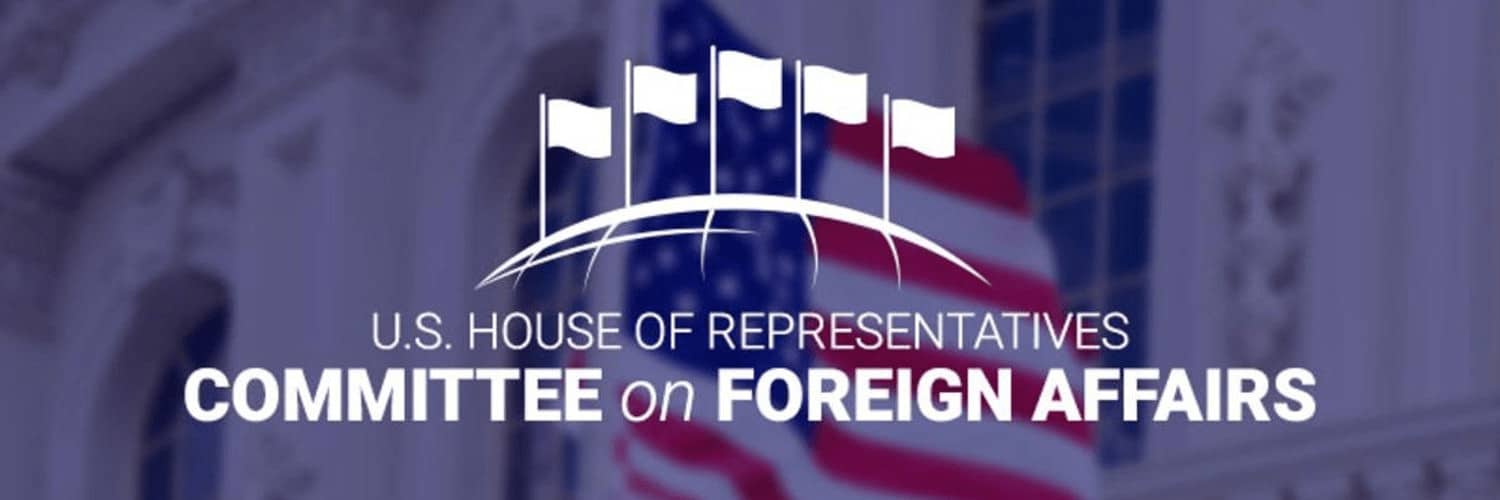In 1979 Congress did something both bold and unusual. That year, President Carter was attempting to build a stronger relationship with mainland China to create a united front in East Asia. To do this, he planned on ending America’s defense agreement with Taiwan. However, in a total reversal, Congress took the reins on U.S. foreign policy by passing its own legislation on Taiwan and scuttled President Carter’s plan.
The Taiwan Relations Act strengthened America’s ties to Taiwan and fostered the relationship we continue to share today. It also displayed the immense power Congress has to set American foreign policy that lasts longer than any presidential terms. When Congress decides to take action, it is in the best interests of the Foreign Service to be part of that conversation.
Though Congress has had the ability to set foreign policy for decades, only the Executive Branch has the bureaucracy, the intelligence capabilities, and the information chains working around the clock to implement its own notions of foreign affairs. Instead of a bureaucracy, members of Congress have to rely on their own overburdened staffers or drawn out hearings to get the information they need. These congressional staffers often have high turnover rates, multiple issue areas to work on, and little to no field experience in foreign policy. This, combined with the need for consensus and compromise, makes Congress the underdog when it comes to formulating foreign policy. It also makes them eager consumers of information—information that, very often, the Foreign Service has at its disposal.
Ambassador Alexander Watson, a former State Department congressional liaison, spoke extensively about working with Congress in his interview with ADST. He was a key source of information to congressional personnel when they needed the expertise that only America’s diplomatic service could provide.
Congress, however, isn’t the only party that stands to gain from this relationship. Despite being on the president’s team, diplomats often need tangible “deliverables” when dealing with foreign powers. And who better to get “deliverables” from, than the branch of government with the purse strings?
Former Uruguay Desk Officer Stephanie Kinney (along with the rest of the Reagan administration) was excited to see Uruguay return to democracy in the early 80s. To keep them going on the right track, she approached Congress for “deliverables” that could help entice Uruguay to fully embrace democracy. Ultimately, she helped to write legislation to do this, going around State’s official channels.
In this “moment” in U.S. diplomatic history, we see that both Kinney and Watson knew how to make the most out of the relationship with Congress—sometimes in spite of State Department rules on working with the legislative branch one-on-one. To learn more about the role the Foreign Service plays in helping to form legislation, read Stephanie Kinney and Ambassador Alexander Watson’s exclusive interviews with ADST.
Drafted by Reagan Ashley
ADST relies on the generous support of our members and readers like you. Please support our efforts to continue capturing, preserving, and sharing the experiences of America’s diplomats.
Excerpts:
…the new policy by some fool in H was that, “Foreign Service officers were no longer supposed to go up to Congress and talk to them on their own. That was part of the problem. You have to come through H [Bureau of Legislative Affairs]!” And we all knew what that meant: zip. So I just went up on my own anyway. ~ Stephanie Kinney
Stephanie Smith Kinney
Washington, D.C.—Office of the Director General; Policy Coordination Team 1976–1979
Washington, D.C.—Uruguay-Paraguay Desk Officer 1983–1986
Washington, D.C.—Deputy Coordinator for Counter Terrorism (S/CT) 2002–2003
Read Stephanie Kinney’s full oral history HERE.
Read another interview from Stephanie Kinney HERE.
The interview used in this “Moment in Diplomatic History” is published HERE.

Getting the “Deliverables”
Uruguay got two gifts that kept on giving when they got back to democracy because of me—because I figured out who the one person in the U.S. Congress was that had been Peace Corps in Uruguay. His name was Doug Bereuter from Nebraska, and I went and called on him, even though the new policy by some fool in H was that, “Foreign Service officers were no longer supposed to go up to Congress and talk to them on their own. That was part of the problem. You have to come through H [Bureau of Legislative Affairs]!” And we all knew what that meant: zip. So I just went up on my own anyway.
I was a Foreign Service Officer. He received me. I told him what my problem was. I asked him what he thought about Uruguay’s return to democracy and whether he shared the concern that the issue was not returning, it was staying returned. I asked him what he knew about Uruguay, whether he had kept following it since his Peace Corps days, which he had and what ideas he had about what might make sense.
And I shared with him my observations from my trips down there that people used to ask me all the time, “what had happened? Why don’t you want our wool anymore?” To which the answer was, “we’re not having any more northern wars. I’m sorry. The wool thing is not gonna really work for you because we’re not going to need blankets.” And the same thing for beef. We got more beef of our own than we can shake a stick at. So we’re going to have to think about things, but we can help you do a transition.
And so Doug and I cooked up two pieces of legislation, for which he asked me for the draft. It was an earmark, which was anathema and definitely not to be done. But he said, if you’ll draft it, I’ll put it in because I think this makes sense. They’re going to need help. We don’t want them to go back to [an] authoritarian, military regime, and they’re going to, that’s going to happen unless they have some economic relief. So let’s give them a cheese quota and let’s—he was from Nebraska, so he would, yo know—and let’s give them a textile under the—some fabric, I can’t remember the name of it now. But anyway, it was an increased textile because they were producing a lot of wool. I bought all my winter suits down there for two seasons that I kept going down and for forty dollars instead of 550 at Bloomie’s. So we got them those two things because—and we got them ESF [Economic Support Fund]—and it was all in recognition and the driving force was the state visit we cooked up.
Because the White House couldn’t do anything else at the time, they agreed to a state visit as the best way because it was the first one to come back to democracy in South America after that horrible period. So we had a state visit and of course you had to have deliverables. So I had three deliverables already lined up with Congress. And the day that I took the legislation up, I got cold feet. I told my office director where things were and we both had a little chit chat with the PDAS [Principal Deputy Assistant Secretary] at the time, Bob Gelbard. Bob essentially winked at Milton and said, “why don’t you go up with Stephanie just to make sure she doesn’t get in trouble.” And that was the senior supervisor’s way of saying, little girl, I’m going to give you some cover, see what you can do with it, because we all know we need this.
And that’s how one of the most successful state visits during that period—the White House sent over a very nice note saying it was the finest design and operationally effective and substantively effective state visit that they had seen in five years. Thank you, State Department.
————
Ambassador Alexander F. Watson
Washington, D.C.—Special Assistant for Congressional and Public Affairs, 1975–1977
Economic Bureau
La Paz, Bolivia—Deputy Chief of Mission/Chargé 1979–1981
Peru—Ambassador 1986–1989
Read Ambassador Watson’s full oral history HERE.
Informing Legislation
Q: Let’s talk about dealing with congress. Did you find was there a problem or suspicion getting over to Congress and who would you see and what would you do?
WATSON: Of course I was scared to death. I’d never been there. I didn’t know what to do, but I figured, I approached it like a Foreign Service Officer in the political section in a foreign country in an embassy. You figure out who were the people you’ve got to know and where your interests are and who the people are who would make a difference and you go up and try to meet them. You don’t have to meet the top dog. You can meet the little dog who was doing the real work and you try to smoke out what’s going on. I could go on at this in great length.
First of all on the Hill at least in those days people were really quite open. There was a different attitude toward information on the Hill than you had in the executive branch. The executive branch, the bureaucrats, be they Foreign Service Officers or others, if they had information they tended by and large to hold it pretty close to play their cards in a way within the bureaucracy that was most advantageous to advancing what they’re trying to do. So, this isn’t to say that people ultimately hid things from each other although that did happen from time to time, but they were much more cautious. On the Hill they are the buyers of the information, they want information, they need to have it, they don’t have a bureaucracy generating it for them. They’re getting stuff from all over the place, they’re trying to sort it out to meet some kind of legislative or political requirements of where the boss is, the staffers. So, I found them really quite open. Some of them were more difficult. It was sort of funny to see these little dogs behaving like their masters. It’s like you say that dogs look like their masters, well, sometimes on the Hill the staffers adopt the attitudes and behaviors of their leaders. It’s sort of comical sometimes. They browbeat you like you’re a witness and they’re the chair on the committee and you sweat. After you get through all that nonsense you sit there, you find mutualities of interest and they need information and you can get them information and you have objectives and they can help you achieve your objectives. That’s the basis of the arrangement.
The most important characteristic at least in those days in my view was a good congressional relations person were first of all pay attention, figure out what’s going on, analyze like a political officer. What is really happening, who is really important, come back and report back to Enders and Katz and others with my recommendations of what we’d do next. The second thing is if the congressional staff or the congressman himself or herself needs your help with something or your support or the information, provide it. Third, be absolutely reliable. If you say you’re going to provide it, provide it. Don’t bullshit them. Many of them did because they desperately needed this information and they work on a very fast pace there. They’ve got to have it by 2:00 this afternoon and it’s now 11:00 you’re got to go up and get it that fast. Fourth, be discrete, be careful about what you say about people because you don’t necessarily understand all the relationships among the members of Congress and members of staff and others. You may find that you say, boy I was just over there talking to so and so and he’s really this, that and the other and it proves to be devastating to the person you’re talking to who is an enemy on the Hill and it gets around. So, those are the basic things. I really enjoyed it. I found that once you follow those rules and if you apply yourself with energy, had a sense of humor of course, remember we had ______ up there in the house of appropriation foreign affairs subcommittee, appropriations subcommittee and then _____ of Maryland. Russell Long on the senate finance committee. These are legendary characters. I remember Russell Long saying a full finance committee, mark up a great big tax cut, every lobbyist in town was in this huge room. Russell Long comes in there and sits down and I don’t know quite why he said this, he said, “My Uncle Earl said,” remember Earl Long?
Q: Yes, governor of.
WATSON: Semi-crazy governor of Louisiana.
Q: Yes, part of the Huey Long dynasty.
WATSON: Yes, he was the brother of Huey Long and Russell Long was a nephew. In any case, “My Uncle Earl, Earl Long, my Uncle Earl says a politician should never, never lie except when absolutely necessary.” The whole room broke up. Bob Dole was the ranking minority member I think it was, pretty sure it was. This was, I think it was, pretty it was, I could be wrong, but it was quite time. I learned a hell of a lot and met lots of nice people. There were congressional staff people that I met there and am still friends with. Still see them around.
Q: One of the things that, the Foreign Service has often, it’s been said that the problem with the Foreign Service is they don’t understand how to deal with Congress and they are suspicious of them and they don’t give good service to Congress therefore they are returned in kind. Were you up against this particular prejudice or problem?
WATSON: I think that statement is said a lot and that belief is out there and it’s probably true to some extent, but I think it probably has more to do with the relationship between the State Department as a bureaucratic institution and the Congress over the rights, prerogatives, success and failure of that institution as opposed to specific kinds of substantive issues which exists beyond the institution itself. I may be wrong, but that’s my thought in response to what you just said. That is to say, I didn’t have that. Most of the issues we were dealing with, international economic issues, the State Department was not the lead agency. Remember under Kennedy they stripped the trade authority out as part of the deal with the Kennedy round who created the USTR. During this time we were creating the foreign commercial service and the people in Congress always had the ax to grind. They were being fed by others that you’ve got to get this horrible State Department out of our affairs so we can have some area that we can sort of control for our economic interests in the U.S., commerce and things like that. They were making these kinds of deals. On those issues here we were working with Treasury, with USTR, with the Federal Energy Agency with AID, a lot of these issues. Some of the issues the State Department was the lead agency, but on most of it was another agency. It was important that you could work with Congress. Also, if you were clever and you had good relations with Congress you could have even if there were differences within the executive branch, not that you would be disloyal if the president decided, but while still things were in formation or you could sometimes get your own views independently up there on an issue. They would ask. It’s like on a hearing, the State Department said this; Treasury said this, try to get coordinated. You’re not necessarily coordinated all the time or do you necessarily have the same point of view nor should you necessarily express the same point of view if you don’t actually have it. I didn’t find that. I found that certainly in the economic area, a person like Jules Katz who was Principal Deputy Assistant Secretary most of the time I was there and then became Assistant Secretary for a while is highly respected on the Hill and in Trade and Agriculture. A guy with the same qualities I said before that we relied upon. Jules would never mince words. He would tell you what he thought. If you didn’t like it you knew where he stood, you knew what you had to bargain with. If you asked him for information he would give you the answers to the best of his ability. If he didn’t have it you’d go get it. He was highly regarded. It’s harder though for Foreign Service Officers who were not in the position and even political appointees and others from other agencies, you don’t have the luxury of being like Jules with many years of dealing with these issues on the Hill. It’s a little bit hard to do that. It can be done, but you’ve got to spend a lot of time developing relationships.
Q: How did you find Tom Enders? I mean you’re watching your principal go up there and I think of Tom Enders one hears, I mean, you know, he’s imperious, very smart and all this and sometimes this is just the thing that’s the burr under a lot of congressional saddles. Was he able to play and understand the different roles? How did he work the congressional side?
WATSON: My own view was that Tom was not as successful at that as he was at handling things inside the executive branch, that he was ineffective. He didn’t have the kind of credibility out there or standing is a better word as someone like Jules Katz did. Tom had the problem of walking into a room full of large egos and having been the valedictorian at Yale, looking sort of almost European as opposed to American, pocket handkerchiefs and stuff.
Q: Sort of like Dean Acheson.
WATSON: But twice as tall and a way of speaking, very clipped and authoritative and not very conversational. My recollection, this is a long time ago now, 25 years ago, was that he didn’t really have too many really good congressional contacts.
Q: Were there any issues you can think of that particularly engaged you at this time?
WATSON: Oh, yes, God, many, many issues. One that I actually made a difference on had to do if I remember correctly had to do with the taxation of Americans overseas. As I say it I have my doubts now because taxation is with Ways and Means that is handled in the House commerce committee with Jay Rockefeller of West Virginia as chairman. Maybe it had something to do with taxes, but it was being concurrently handled by two committees. But in any case I think it had to do with taxation or the status of Americans overseas in some fashion. In any case, I remember writing the sentence, giving it to a staffer Charlie Curtis who is a big wheel in this town now who was the general counsel of that committee who gave it to the chairman of the committee who stood up and read it out as his own amendment, any objections, no. Your own language. So, that was kind of satisfactory. As I told you before we worked a lot on these energy issues. All night long, night after night in the conference between the house and senate. Scoop Jackson was leading the senate side. I was running around trying to make sure that the State Department’s concerns were taken into consideration. That’s done, a lot of time, on the replenishments and appropriations for the World Bank and the American Development Bank, Asian Development Bank, African Development Bank. Helping AID on legislation. I was up there all the time. Lots of very specific trade issues. As I mentioned before the Arab boycott business, the Foreign Corrupt Practices Act which was mostly in the banking committee, I’m only remembering a few of the things. I had an agenda that was probably ten things every single day, a very exciting and very interesting job. I highly recommend it to anybody.
Q: What about other bureaus? I would assume that particularly the Near East Bureau would have all sorts of its problems while Congress had its perspective.
WATSON: Well, State had to develop a position on these kinds of things, but we’re basically talking about oil import policies and oil pricing policies and development of oil reserves and all that kind of stuff. I wish I could be more explicit, but now it is hard for me to remember exactly what the issues were.
Q: Do you recall the Corrupt Practices Act which at the time the United States was as usual way out in front on this. Obviously
WATSON: It was pushed by Senator Proxmire I think.
Q: Yes, essentially American business _____ and since everybody else was doing this and this was the way world business went in those days. It’s changed now. This has become the law of the world more or less. Anyway. It’s basically accepted as being the right thing to do. Where was State on this? We must have been saying oh my God, this is sort of never never land and you’re going to screw American business.
WATSON: My recollection is that our position was in opposition to it.
Q: I would think so at that point.
WATSON: When you get right down to it, what you’re talking about is, it is very specific ideas within the big idea. What exactly is going to be prohibited and exactly what degree of proof is required and those kinds of things. I think we were spending a lot of time on that kind of stuff. I dealt with a very wide range of committees, an appropriations guy, a wide range of fascinating characters, from Commerce to Energy to Appropriations, Foreign Relations to Ways and Means, the Finance Committee, Armed Forces Committee from time to time.
Q: Did you have anything to trade or was it just that you were there as a good bureaucrat saying I can get you the information, but there wasn’t, you know if you do this I’ll do that sort of thing. I mean, I’m talking to the bureau of course.
WATSON: No, not like the Pentagon with all its planes and stuff and its offices on the Hill and all the benefits they can give people and putting a base in your backyard and all that kind of stuff, no.
Q: Put an embassy in Arkansas.
WATSON: No, we didn’t have that kind of stuff and you had to work on a completely different basis. I don’t remember being asked by anybody for much. They kept, as I told you, information and materials.



